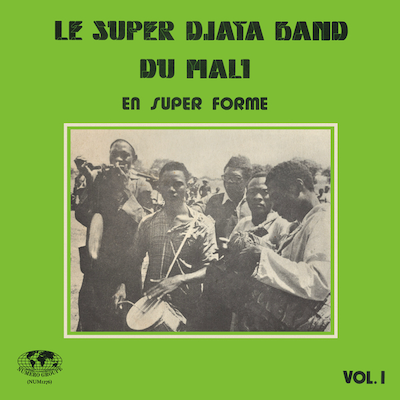12. Le Super Djata BandEn Super Forme

During the 60s and the 70s, Mali and Guinea got independence. In Guinea the French had just left the country with all their equipment and technology and everything. People didn’t really know what to do. So the government had this idea of boosting the national spirit through music and art. They had all this money and they invested it in the musicians and the country and the national orchestras in Guinea. They were housed by the government, paid by the government, got the instruments from the government and they just made music for the government.
In the neighbouring country of Mali, the government did the same thing, but Mali gave the musicians more freedom to do what they want with their music. These guys were part of that crew. So they made a couple of records and released them; I bought them a few years back, because I was looking into psychedelic music. I found them and was like, ‘Whoa, they’re really sick! Like, what?’ Damn, these guys made this stuff in the 60s and 70s, it sounds so good!
Right now, you would still say, ‘Oh, this is an awesome song.’ It’s very raw because they didn’t have good production. But the rest is so moving and nostalgic. It’s like dreamy, surreal at some points. Your mind is filling up with extra chords and stuff because of the way that they reference chords. So you feel like you’re part of the music itself when you’re listening to it. It’s a whole feeling, a whole vibe, a whole experience.


